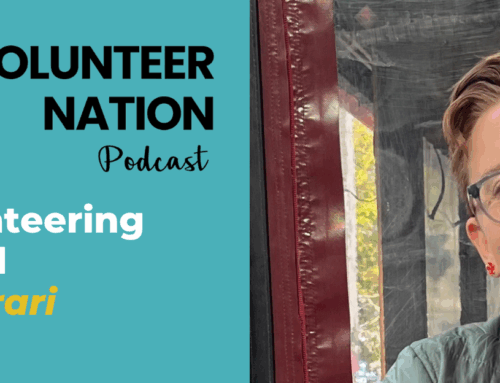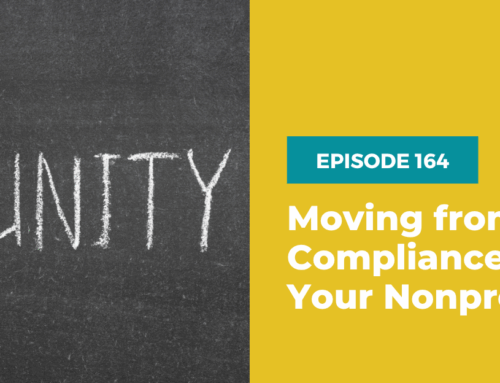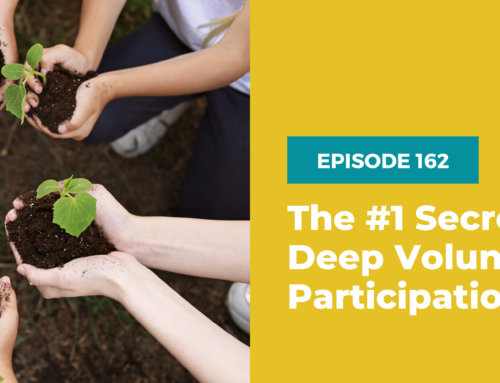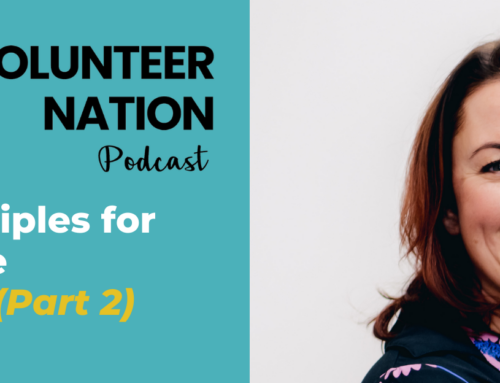 Successful Volunteer Programs Can Come from Failure!
Successful Volunteer Programs Can Come from Failure!
Lately I’ve become more and more fascinated by failure and how nonprofits can build successful volunteer programs in spite of it. One way to become more resilient is to help your team learn from their experiences by making it safe to fail. Supporting emotional safety is important, and you can do this by avoiding the blame game.
Yesterday, I was reading the Harvard Business Review online and came across a webinar hosted by Amy Edmondson, Novartis Professor of Leadership and Management at Harvard Business School. I took a look and was intrigued by what she had to say. She discussed how to best learn from failure, based on the research of corporations who are great at it.
Although nonprofits certainly don’t have the depth of resources large companies have to delve deep into the world of process improvement, I thought I’d share few takeaways that might be helpful.
During the webinar, Professor Edmonson discussed some key characteristics of the stellar companies she studied — being comfortable about not knowing and not being right, persistently asking for help, reporting mistakes, and admitting failure out loud. Failure, furthermore, isn’t about not being accountable. It’s about being highly accountable, owning up, and taking responsibility for understanding project mishaps.
But there was a subtle twist. It also isn’t about owning up to who was wrong. Rather, the focus is on what went wrong. In this way, we move away from blaming people to getting things fixed.
Edmondson argued that the gap between which acts we perceive as blameworthy and which are, in fact, truly someone’s fault is wide. She also noted that one reason we humans tend to gloss over failure is that we have an innate optimism that something will be successful. Another reason is fear.
But we needn’t be fearful. There’s a good reason to fail and do it in the open without blame. If we don’t blame, people won’t be afraid to fail next time. We need people to fail. Why? Because it’s the first step in the problem-solving process. Also, unattended mistakes, that seem minor, can culminate into big failures that may cost us precious resources down the road.
What You Can Do
So, what does Edmonson suggest? Here are a few things you can do to build a safe, blame-free environment that supports positive growth and will help to build a successful volunteer program.
- Train Your Team to Problem Solve — Find a process that works for you and use it.
- Reward Improvement Suggestion — Do not shoot the messenger, ever.
- Unearth Deviations in your Processes — Minor issues may signal areas that require a second look.
- Promote Vigilant Teaming — Differing perspectives can cover more area than a single one. Set up a team to search for vulnerabilities, conduct postmortems of events, or identify new knowledge. Why not use volunteers to staff your team?
- Regularly Analyze Why Things Go Wrong — Look at the categories below to get started.
Where to Look for Mistakes
In addition, seriously analyze what led to any failures you experience. Edmondson mentioned taking a look at the following possible reasons:
- Deliberate Deviation
- Inattention
- Incompetence
- Process Inadequacy
- The Difficulty of the Task
- The Complexity of the Process
Can you see how, in the majority of these situations, it’s probably not one person’s fault? Or, the issue could have been prevented with some effective training or simplification? By taking a good look at the root cause for your failure, you’re likely to unearth some pretty good information to make a positive change. This takes the focus off the people and on the process where it belongs.







Leave A Comment